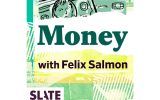Scott Buchanan, the executive director of the Student Loan Servicing Alliance, a trade group representing loan servicers, said that since the program was announced, it has not been uncommon for call centers to begin the day with at least 2,000 people waiting to speak to someone who might have more information. There is little for servicers to do, he said, but encourage callers to sign up for Department of Education email updates.
As borrowers wait, debt forgiveness activists and loan servicers say misinformation is mushrooming and scammers are proliferating.
The Department of Education warned about fraud in its email promising weekly updates. “You might be contacted by a company saying they will help you get loan discharge, forgiveness, cancellation, or debt relief for a fee,” the message said. “You never have to pay for help with your federal student aid.”
Administration officials say they are in regular contact with the Consumer Financial Protection Bureau and the Federal Trade Commission to discuss ways to stay ahead of scammers, and that the F.T.C. has issued alerts to borrowers.
Borrowers are trying to help each other on TikTok and Facebook. Hundreds have contributed recordings of shady voice mail messages, encouraging others not to answer suspicious calls. Private Facebook groups where people share stories and solicit advice have drawn curious users.
Debby Carter, an artist who lives in St. Petersburg, Fla., said she received a voice mail message within hours of…














